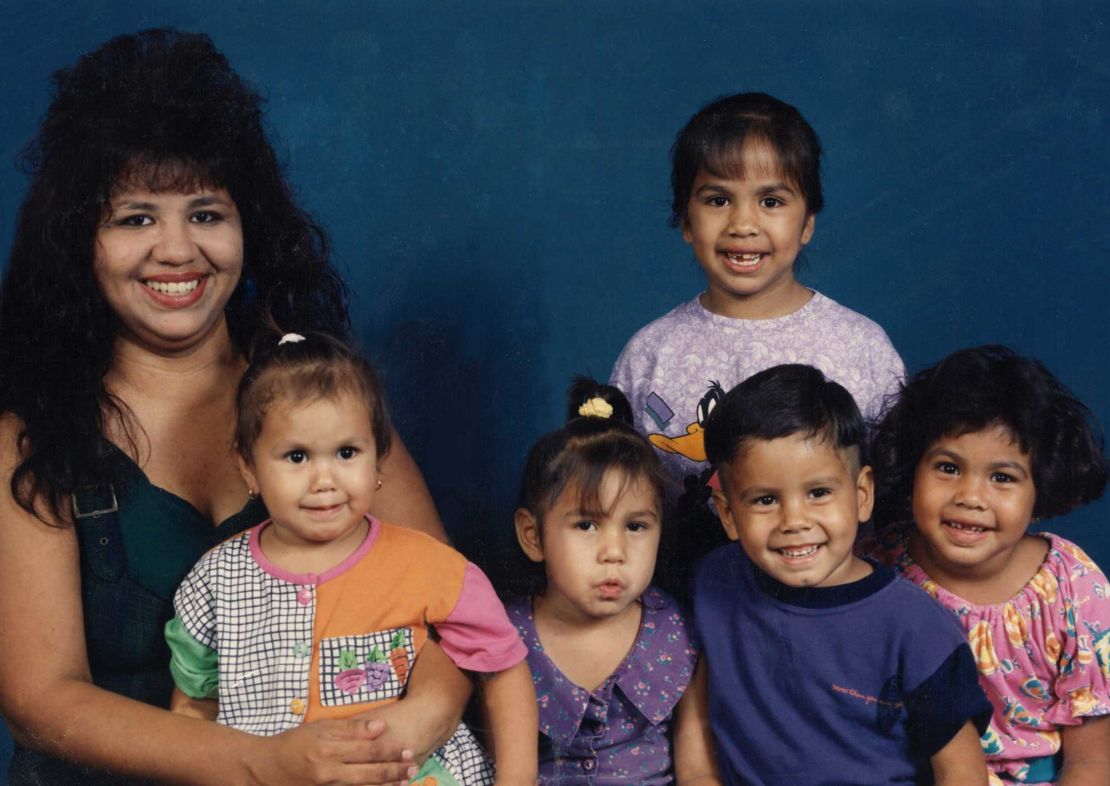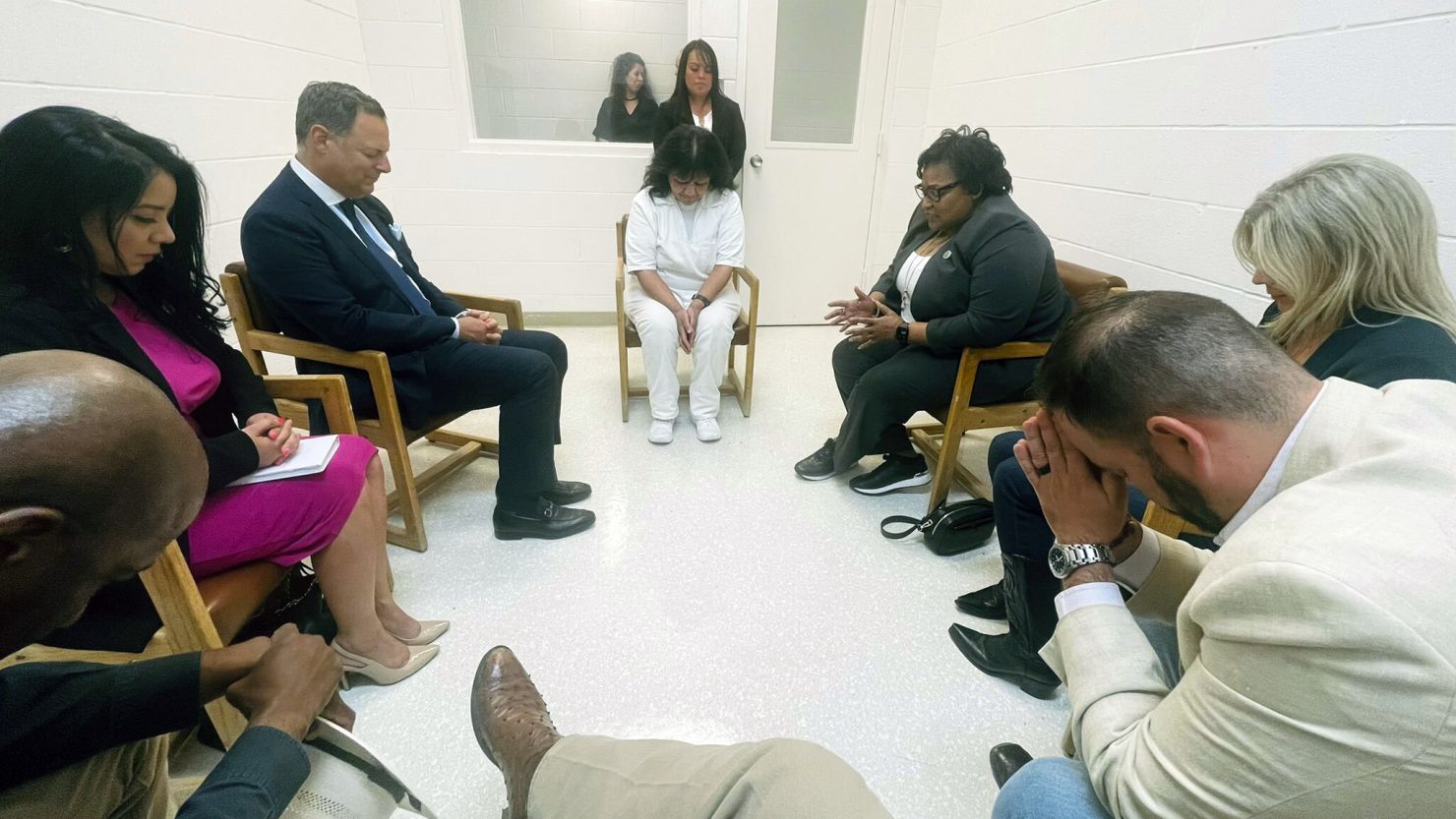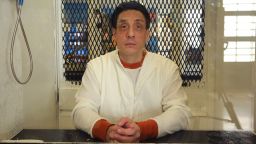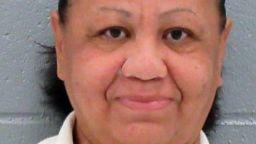A Texas judge last week recommended the conviction and sentence of a mother on death row be overturned, finding prosecutors withheld key evidence that could have prevented her from being found guilty in the 2007 death of her 2-year-old daughter.
The evidence – namely a Child Protective Services report and interviews with inmate Melissa Lucio’s surviving children – would have corroborated the defense’s theory at trial, according to a filing submitted by her attorneys and prosecutors and signed by the judge on Friday: Lucio’s toddler, Mariah Alvarez, died because of injuries sustained in an accidental fall down stairs and not from abuse at the hands of her mother, as the state claimed.
The case now returns to the Texas Court of Criminal Appeals, which two years ago halted Lucio’s execution two days before it was set to be carried out, sending her claims back to the trial court in Cameron County for review. The appeals court has the authority to overturn Lucio’s conviction, and it’s unclear when it might make a decision.
Lucio’s case garnered widespread support in recent years, particularly ahead of her scheduled execution. Kim Kardashian – the celebrity and entrepreneur who has championed a number of death row inmates’ cases – as well as a bipartisan group of Texas lawmakers called for mercy on Lucio’s behalf, as did five members of her jury.
At least 197 people sentenced to death in the United States since 1973 have been exonerated, 16 of them in Texas, according to the non-profit Death Penalty Information Center.
The recommendation in Lucio’s case by Judge Arturo Nelson – who presided over her capital murder trial – comes more than a year after Lucio’s attorneys and the Cameron County District Attorney’s Office submitted a filing of agreed-upon facts and conclusions in the case, including an acknowledgement the state withheld evidence favorable to Lucio. Both sides agreed she was entitled to relief, they said this month in a joint statement.
On Friday, Nelson signed that filing, indicating his agreement with its conclusions and finding Lucio had “met her burden of proof, by a preponderance of the evidence, that she would not have been convicted in light of the suppressed evidence.”
“We are grateful to our mother’s legal team for their hard work to bring the truth to light and to D.A. (Luis) Saenz for taking another look at our mother’s case and recognizing that she did not receive a fair trial and her conviction should be overturned,” two of Lucio’s sons, Bobby Alvarez and John Lucio, and her daughter-in-law Michelle Lucio said in a statement provided by Melissa Lucio’s attorneys.
“We hope and pray the Court of Criminal Appeals will agree with the District Attorney, the defense, and Judge Nelson and our mother can come home to her family,” their statement said. “It’s been 17 years that we have been without her. We love her and miss her and can’t wait to hug her.”

‘Reasonable probability’ trial outcome would be different
Then a toddler, Mariah died February 17, 2007, two days after, Lucio contends, she fell down a set of steep stairs outside the family’s apartment, potentially causing a traumatic head injury that caused her death. Prosecutors, meanwhile, argued Lucio was an abusive mother responsible for her daughter’s injuries, in part citing a purported “confession” she gave authorities the night of Mariah’s death.
Lucio’s attorneys have denied she ever confessed, arguing her statement was coerced during an “aggressive” interrogation and Lucio was susceptible to coercion because of her history as a lifelong survivor of sexual abuse and domestic violence.
The key evidence now at issue stems from Child Protective Services interviews with five of Lucio’s other children in the hours after Mariah died and statements two of the older children – one a teenager, the other 20 – gave police.
According to the filing of agreed-upon facts and conclusions by defense attorneys and the district attorney’s office, several of Lucio’s children denied to Child Protective Services that their mother was abusive and said she had never hit them or Mariah. At least one of them witnessed Mariah’s fall down the stairs.
Additionally, two of Lucio’s oldest daughters provided sworn statements to police, corroborating details about Mariah’s declining health and their mother’s mounting concern in the days before she died.
Both Lucio’s attorneys and prosecutors agreed, however, that this evidence, was not disclosed to her trial lawyers – a so-called Brady violation. If the evidence had been shared, the filing notes, Lucio’s attorneys would have been able to present it as evidence that Mariah had fallen and challenge testimony that suggested Lucio was lying. The withholding of evidence also prevented Lucio’s attorneys from being able to fully investigate the true cause of Mariah’s death, the filing says.
Ultimately, if the evidence had been disclosed to Lucio’s lawyers and presented to the jury, “there is a reasonable probability that the outcome of the trial would have been different,” the filing signed by the judge concludes.






